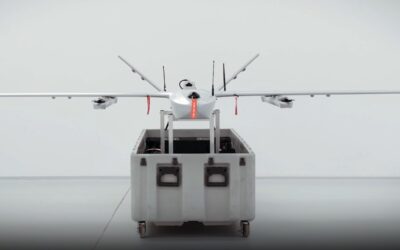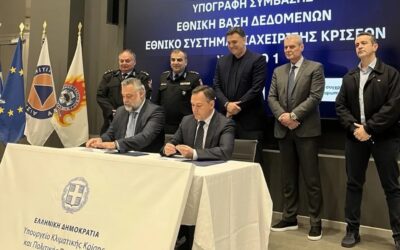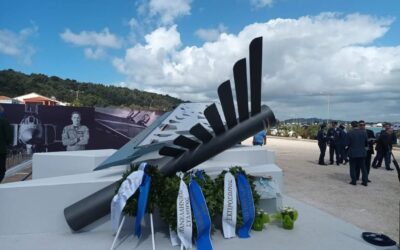TEKEVER, a Portuguese drone manufacturing company, has successfully completed an operational exercise with the U.S. Special…
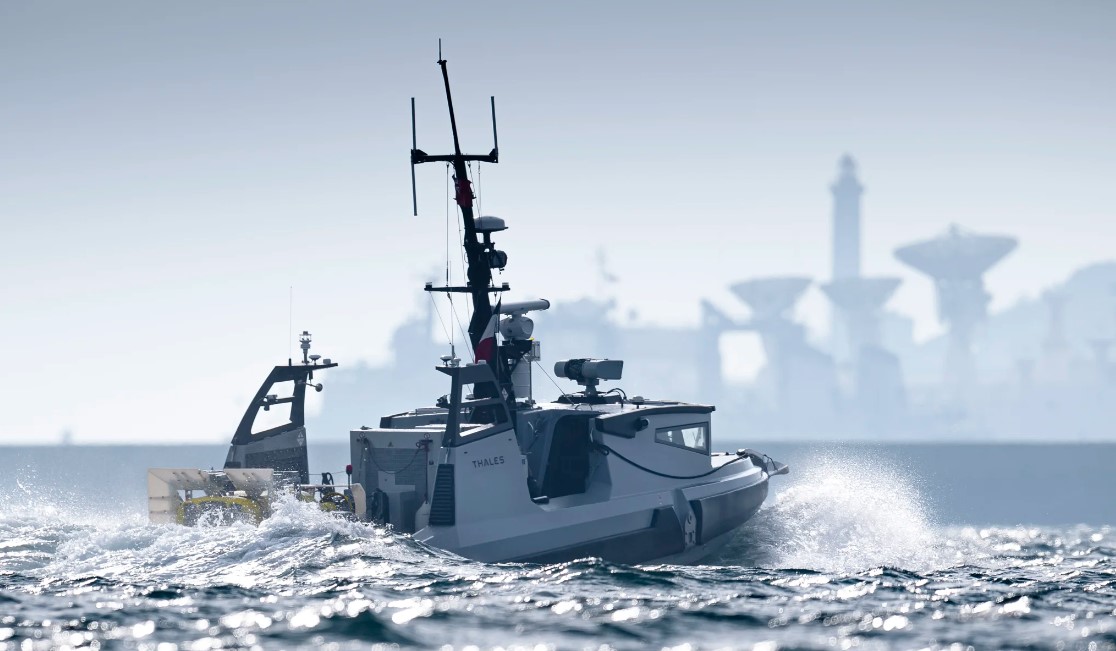
Apollo, an unmanned surface vessel (USV) delivered by Thales to the UK Royal Navy as a pre-production platform, has completed a demanding series of open-water trials on behalf of the Royal Navy.
According to Thales, the trials were run in December 2022 off Weymouth Bay by the Royal Navy Maritime Autonomous System Trials Team (MASTT) and supported by Thales, whereas representatives from the UK Naval Authority and Technology Group (NATG) and the Mine Hunting Capability team from the UK Ministry of Defence were observers.
The trials took place as part of the Anglo-French Maritime Mine Counter Measures (MMCM) programme, which is delivering autonomous capability for both the RN and the French Navy.
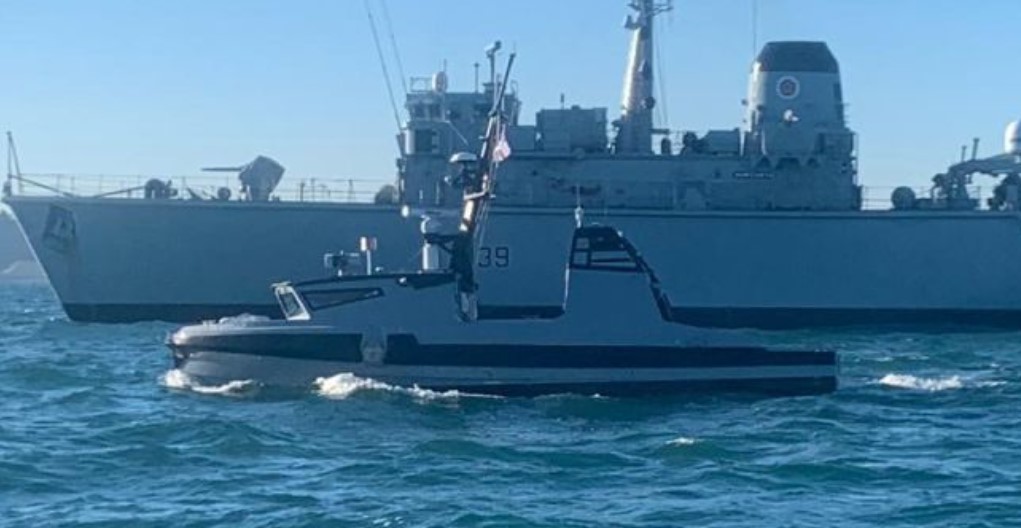
The said system successfully proved that remotely-controlled unmanned vessels can be operated by a team at a shore-based control station, completing a series of tasks, while retaining awareness of its course and position using line-of-sight communications systems.
Thales stated that the MMCM programme is delivering maritime mine warfare capabilities, which will keep the United Kingdom and France at the forefront of naval autonomous systems technology. The company added that the delivery of unmanned mine clearance platforms to the Royal Navy will allow it to continue the important role of keeping shipping lanes open without putting manned platforms into the threat area.
Apollo is fitted with a full sensor package, including radar, LIDAR (light detection and ranging) and electro-optical/infra-red cameras, while the vessel’s position is continuously relayed to the command-and-control centre over a secure communications network. This connection enables the command-and-control software to merge the sensor inputs into a single, coherent tactical picture using Thales’ MCube mission management software.
This also allows the detection and tracking of other vessels so that RNMB Apollo can take appropriate actions, including remotely-controlled avoidance manoeuvres.
Also read: ULAQ | Turkey’s first armed unmanned surface vessel (AUSV) – VIDEO
Once in service, vessels like Apollo will be capable of operating in national waters being either deployed from ships or remotely-operated by shore bases, or being air-transported quickly across the world for mine warfare missions or for sea lines of communication support missions.
Apollo is one of the two pre-production USVs delivered to the Royal Navy and French Navy in December 2021 as part of the UK-French MMCM programme (the other one being RNMB Artemis). With stage two of the contract now in the production phase, Thales said that it is actively working with the customers and will be able to deliver a full operating capability to both nations in 2024.
The capabilities provided by the MMCM programme will ultimately replace the manned mine countermeasures vessels (MCMVs) operated by the British and French Navies. The RN’s seven Sandown-class MCMVs are due to be decommissioned between now and 2031 and the RN’s Hunt-class MCMVs between 2029 and 2031.
These first trials are a significant milestone in the path towards certification of autonomous maritime systems for operational use and they represent one of the first important steps in gaining trust in unmanned vessels towards autonomous mine hunting, Alex Cresswell, Chief Executive and Chairman of Thales UK, stated.
Also read: B5 Hydra | Cyprus-based Swarmly Aero’s unmanned surface vessel
READ MORE
Indra – Rheinmetall | MoU to Extend Successful Cooperation on Leopard 2E
Indra and Rheinmetall Electronics have signed a Memorandum of Understanding (MoU) to propose an upgrade to the Combat System of the Spanish Leopard 2E main battle tank.
The World Map of Nuclear Weapons
Nuclear weapons remain one of the most significant instruments of geopolitical power and deterrence.
Nova ICT | Undertaking the Implementation of the National Crisis Management System and National Database in Civil Protection
The contract for the implementation of the National Crisis Management System and National Database in Civil Protection was…
TEKEVER | Demonstration of the AR3 Drone in the U.S. Special Operations Forces Exercise
TEKEVER, a Portuguese drone manufacturing company, has successfully completed an operational exercise with the U.S. Special…
Indra – Rheinmetall | MoU to Extend Successful Cooperation on Leopard 2E
Indra and Rheinmetall Electronics have signed a Memorandum of Understanding (MoU) to propose an upgrade to the Combat System of the Spanish Leopard 2E main battle tank.
F-4 Crash | Revelations for the Monument of the Two Fallen Airmen
An official ceremony was held yesterday in Katakolo for the unveiling of a monument dedicated to the two fallen pilots, Commander (I) Efstathios…
National Guard | Military Marksmanship Competition for Special Operations Snipers and Sharpshooters
From 12 to 13 March 2025, the 1st Military Marksmanship Competition for Special Mission Snipers – Skirmishers was held, with the participation…
HCDI | Invitation to Participate in the Recording of the Potential and Prospects of the Hellenic Defence Innovation Ecosystem
The Hellenic Centre for Defence Innovation (ELKAK) aims to foster the domestic defence innovation ecosystem while supporting start-ups, innovative…















